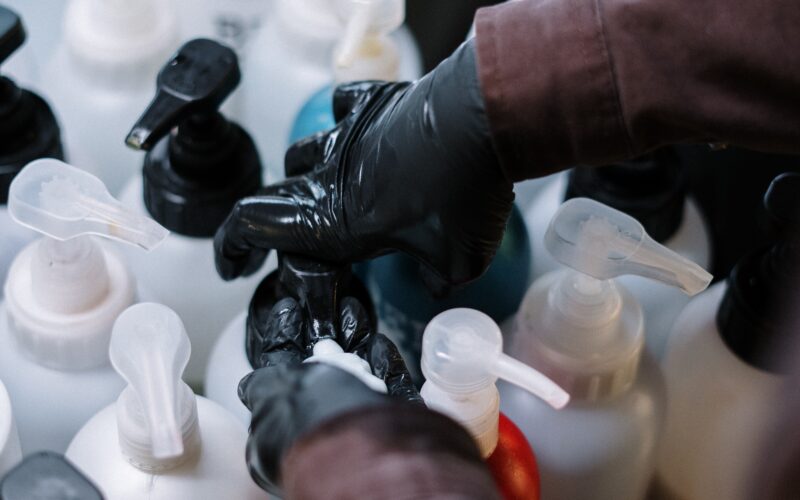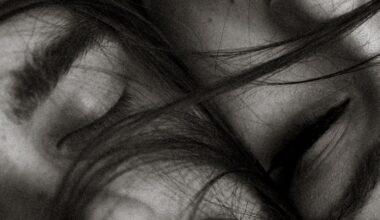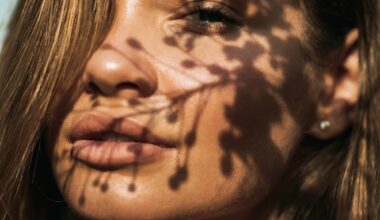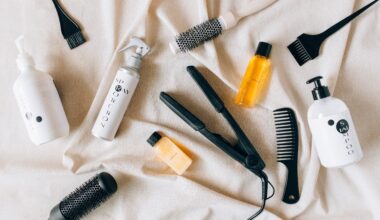Introduction
In the vast realm of hair care, few products have faced as much scrutiny and skepticism as hair conditioners. From corner salons to bustling beauty forums, there’s a myriad of voices either singing praises or casting doubts. With so many divergent opinions, it’s no surprise that the question “Is hair conditioner bad?” has taken center stage. In this enlightening journey, we’ll dismantle the myths surrounding hair conditioners and shine a spotlight on their transformative benefits. Whether you’ve been a long-time advocate or a wary skeptic, this article promises to offer a fresh perspective, empowering you to make informed decisions for your treasured tresses.
The Perceived Negatives: Why Some Believe Hair Conditioner Is Bad
The hair conditioner aisle at any beauty store is adorned with countless bottles promising shine, strength, and smoothness. Yet, a whispering wind of caution frequently passes through hair care circles, warning about the perceived harms of these products. Let’s dissect these concerns:
1. Weighing Down the Hair: A frequent grievance aired is that conditioners tend to make hair feel heavy, especially for those with finer hair types. It’s believed that some formulas, particularly those enriched with heavier oils and butters, can leave a residue that weighs down the hair.
2. Greasy After-Feel: Another common misconception is associating hair conditioners with a greasy aftermath. The concern stems from a misunderstanding of the product’s purpose – which is to hydrate and seal in moisture, not to deposit oils that aren’t easily absorbed.
3. Fear of Chemicals: With growing interest in natural beauty routines, some argue against conditioners because of their chemical compositions. Concerns typically circle around sulfates, parabens, and silicones, even though not all conditioners contain these ingredients.
4. Short-Term Benefits: Detractors often argue that while conditioners offer an immediate smoothness and detangling benefit, they might not contribute to long-term hair health. This is a half-truth, as the effectiveness largely depends on the product’s formulation and the user’s hair type.
While these apprehensions have a grain of legitimacy, it’s essential to understand that they often arise from misinformation or from using products not suited to one’s specific hair needs. In the upcoming sections, we’ll explore the science behind conditioners and how to maximize their benefits.
The Science Behind Hair Conditioner: Why It’s Beneficial
At its core, hair conditioner is more than just a creamy concoction. It’s a blend of science and art, designed to address the unique challenges our hair faces daily. But what exactly makes it so beneficial?
- Hydration is Key: Every strand of hair has an outer layer called the cuticle. Environmental factors like sun, wind, and pollution, or even frequent hair treatments, can make these cuticles rise, leading to dry and brittle hair. Conditioners contain ingredients called humectants that help retain moisture, ensuring that hair remains hydrated and less prone to breakage.
- Smoothing the Surface: For anyone who’s struggled with tangles, conditioners are a godsend. They work by neutralizing the negative charge of hair strands, helping to smooth out the cuticles. This not only makes detangling easier but also imparts a natural shine to the hair.
- Protective Barrier: Conditioners often contain ingredients like proteins and amino acids that form a protective barrier around the hair strand. This barrier guards against environmental damage and excessive heat from styling tools.
- Restoration of Natural Oils: Shampooing, while essential, can strip the hair of its natural oils. Conditioners help restore this balance, replenishing these oils and ensuring that the hair doesn’t become overly dry or frizzy.
- Elasticity and Strength: Ingredients such as keratin and proteins found in conditioners can penetrate the hair shaft, improving its elasticity. This not only means fewer breakages but also hair that can withstand daily wear and tear with grace.
In essence, the science is clear: hair conditioners are more than just an optional step in your routine. They’re a crucial component for anyone seeking healthy, resilient hair.
Can Hair Conditioner Go Bad?
We often give much thought to the expiration dates on our food items but may overlook the shelf life of our beauty products. Just like any other product, hair conditioners too have a life span. Let’s delve deeper:
- Shelf Life Indicators: Most hair conditioners come with a small symbol on their packaging, often resembling an open jar. This symbol, followed by a number and the letter ‘M’ (e.g., 12M), indicates how many months the product remains effective after opening.
- Physical Changes: If your conditioner starts to emit an unusual odor, changes in color, or has an altered consistency, it’s likely past its prime. These changes can result from bacterial contamination, breakdown of the product’s active ingredients, or both.
- Storing Tips: To ensure your conditioner stays effective for longer:
- Store it in a cool, dry place away from direct sunlight.
- Ensure the cap or lid is securely closed after every use.
- Avoid introducing water into the product, as this can promote bacterial growth.
- Using Expired Products: While using an expired conditioner might not harm your hair per se, its efficacy will be compromised. The active ingredients may degrade over time, rendering the product less beneficial.
- Natural Conditioners: Products made with natural ingredients, without preservatives, often have a shorter shelf life. If you’re an enthusiast for natural beauty, it’s advisable to check the product’s expiration more frequently.
In conclusion, while hair conditioners are formulated for longevity, they aren’t immune to the passage of time. Regularly checking and storing them properly ensures that you’re making the most out of their hair-enhancing benefits.
Is Hair Conditioner Healthy for Your Hair?
The grand debate about hair conditioner’s health effects often leaves many with more questions than answers. Here, we’ll unravel the truth behind this hair care essential:
- Understanding Hair Needs: Just as our bodies require specific nutrients to thrive, our hair too has individual needs. Conditioners are designed to cater to these needs, whether it’s hydration, protein replenishment, or protection from environmental aggressors.
- Beyond Surface Benefits: Some argue that conditioners offer only superficial benefits. However, the reality is that many formulations can penetrate the hair shaft, restoring moisture, providing essential proteins, and strengthening hair from within.
- The Role of Ingredients: The health benefits of a conditioner largely hinge on its ingredients. Products enriched with natural oils, vitamins, and proteins can genuinely enhance hair health, making it shinier, softer, and more resilient.
- Avoiding Common Mistakes: A frequent concern is that conditioners can make hair greasy. This often results from incorrect application—conditioners are best applied to the lengths and ends of the hair, avoiding the scalp. Also, ensure thorough rinsing to prevent any residue.
- Tailoring to Hair Type: What works wonders for curly hair might not be suitable for straight hair. It’s essential to choose a conditioner tailored to your hair type and specific concerns. For instance, color-treated hair may benefit from a color-protecting conditioner, while frizzy hair might require a smoothing formula.
- Balancing with Shampoo: Conditioners complement shampoos. While shampoos cleanse, conditioners nourish. They restore the essential oils and moisture stripped away during the shampooing process, ensuring a healthy balance.
In summation, hair conditioners, when chosen and used correctly, are more than just a luxury—they’re a hair health necessity. They bridge the gap between cleansing and care, ensuring our locks remain vibrant, strong, and beautiful.
Hair Conditioner and Thinning Hair: Myth vs. Reality
Hair thinning is a concern shared by many, and the idea that a staple product like conditioner could contribute to this issue can be quite alarming. Let’s separate fact from fiction:
- The Big Misconception: One common myth is that conditioners, especially those with a thick consistency, can clog hair follicles leading to thinning. In truth, most conditioners are designed to be applied on the hair shaft and not the scalp. When used correctly, they don’t interfere with follicle health.
- Root of Thinning Issues: Hair thinning can be attributed to various causes such as hormonal imbalances, genetics, stress, poor diet, or underlying medical conditions. Blaming conditioner is an oversimplification of a complex issue.
- Benefits to Thinning Hair: For those experiencing hair thinning, certain conditioners formulated with ingredients like biotin, caffeine, or keratin can actually promote hair strength and reduce breakage. This can create the appearance of fuller hair over time.
- The Silicone Debate: Some argue that silicones in conditioners coat the hair, making it weak and prone to breakage. While it’s true that silicones smooth the hair cuticle and add shine, they don’t inherently damage the hair or cause it to thin. However, if one has concerns, there are many silicone-free conditioners available on the market.
- Scalp Health: Ensuring scalp health is crucial in addressing thinning concerns. While conditioners play their part in overall hair health, consider incorporating a scalp massage or using hair products that specifically target the scalp’s wellbeing.
- Shedding vs. Thinning: A crucial distinction to make is between shedding and thinning. It’s natural to lose 50-100 hairs a day. If you notice strands on your brush post-conditioning, it’s typically just part of the natural hair cycle, not a sign of thinning.
In conclusion, while it’s essential to be well-informed and cautious about the products we use, it’s equally vital not to fall prey to myths. Conditioners, when chosen wisely and used correctly, can be a valuable ally in maintaining luscious, healthy hair.
Can Hair Conditioner Cause Acne?
Acne is a concern that transcends age, affecting not only teenagers but many adults as well. As we scrutinize our skincare routines, it’s not uncommon to wonder if our hair products, including conditioners, play a role. Here’s what the research says:
- What is Acne? Before we dive into the conditioner-acne connection, it’s crucial to understand acne itself. Acne occurs when hair follicles become clogged with oil and dead skin cells. This can lead to pimples, blackheads, and whiteheads, often on the face, forehead, chest, upper back, and shoulders.
- The Concept of “Pomade Acne”: This term emerged due to certain hair products causing breakouts on the forehead, temples, and sometimes the hairline. It’s not exclusively due to conditioner but could be from any product that has oils or ingredients that might clog pores if they come in contact with the skin.
- Ingredients Matter: Not all conditioners are made the same. Some might contain comedogenic (pore-clogging) ingredients that could contribute to breakouts, especially if they come in contact with acne-prone areas. Always check the ingredient list, and if acne is a concern, opt for non-comedogenic formulations.
- Application Technique: When applying conditioner, focus on the lengths and ends of your hair, avoiding the roots and scalp. This not only prevents potential scalp build-up but also reduces the likelihood of residue getting on your face or back.
- Rinsing Thoroughly: A crucial step! Ensure you wash off conditioner properly so that no remnants are left behind to slide down onto your face or back during the day, potentially causing breakouts.
- Tips for Prevention:
- Tie your hair up after conditioning, especially if you have long hair, to prevent it from touching your face or back.
- Use a separate towel for your face and hair.
- Cleanse your face after rinsing out your conditioner to ensure no residue remains.
- Listen to Your Skin: While conditioners can be a factor, they’re not the sole cause of acne. Hormonal imbalances, diet, stress, and other skincare products can also be culprits. It’s essential to track what affects your skin and seek dermatological advice if needed.
In essence, while hair conditioners have the potential to contribute to acne for some individuals, with the right precautions and product choices, they can coexist harmoniously in our beauty routines without compromising skin health.
Debunking Hair Conditioner Myths: Expert Insights
Navigating the world of hair care can be tricky with the flood of information available. To bring clarity, we’ve sought insights from professionals in the field – hair care experts and dermatologists – to shed light on these myths.
- Hair Conditioner’s Basic Role: At its core, conditioner’s role is to hydrate and soften hair. Leading trichologist Dr. Jane Peters explains, “The primary function of conditioners is to reintroduce moisture lost during shampooing, making hair manageable and lustrous.”
- Conditioner ≠ Greasy Hair: Celebrity hairstylist Lisa Ortiz points out, “Just because some conditioners can leave a residue doesn’t mean they all do. It’s about finding the right product for your hair type. For instance, fine hair benefits from lightweight, volumizing conditioners, while curly or coarser hair types may need richer, more hydrating options.”
- Silicone Concerns: Dermatologist Dr. Emily Shaw breaks down the concerns about silicones in conditioners: “Silicones have been criticized for potentially weighing down hair. But, in moderation and with regular cleansing, they’re safe for most people. They’re excellent for smoothing frizz and adding shine.”
- On Hair Thinning: Leading hair therapist Mark Thompson elucidates, “The connection between conditioner and hair thinning is mostly anecdotal. Factors like genetics, hormonal changes, and diet play a more significant role. A conditioner won’t change your hair’s genetic makeup.”
- Acne-Causing Ingredients: Skin specialist Dr. Laura Green advises, “If you’re acne-prone, be diligent. Some hair products might contain oils or ingredients that could cause breakouts if they come into contact with the face. Rinsing thoroughly and washing your face post-conditioner can make a difference.”
- It’s About Individual Needs: Renowned haircare expert Angela Stone states, “Like skincare, hair care is deeply personal. What works wonders for one person might not for another. It’s crucial to know your hair type, concerns, and goals, and then choose products accordingly.”
- The Myth of “More is Better”: Stylist Ray Matthews emphasizes, “Using more conditioner doesn’t mean better results. It’s about using the right amount and ensuring even distribution. Too much product can lead to residue and build-up.”
In essence, the experts concur that while it’s essential to choose products wisely and be informed, it’s equally crucial not to be swayed by unfounded myths. Conditioners, when used appropriately, are indispensable tools in our hair care arsenal, promoting health, shine, and manageability.
Conclusion
The realm of hair care is vast and, at times, overwhelming. With countless products lining the shelves and an endless stream of advice (often conflicting) from various sources, it’s easy to find oneself tangled in misconceptions and myths—especially regarding hair conditioners.
From our exploration, a few things are abundantly clear:
- Misconceptions Abound: There’s a significant amount of misinformation about hair conditioners. From fears of greasy hair to acne breakouts, many concerns are based on misunderstandings or outdated beliefs.
- Science Is On Conditioner’s Side: When we peel back the layers of myths, the science speaks for itself. Conditioners play an integral role in restoring moisture, protecting hair from environmental damages, and ensuring manageability.
- Not All Conditioners Are Equal: It’s vital to select the right product for your unique hair type and concerns. From lightweight formulas for fine hair to richer solutions for coarser types, there’s a perfect conditioner for everyone.
- Expert Insights Matter: Turning to professionals in the field—be it hair care experts or dermatologists—offers a grounded perspective. They emphasize the importance of personalization in hair care and the necessity to be discerning consumers, equipped with knowledge.
- Informed Decisions Are Key: Hair conditioner, when used appropriately, is neither the villain some paint it to be nor a magical cure-all. Like all tools in our beauty repertoire, its efficacy lies in how well we understand and use it.
In summary, conditioners, far from being detrimental, can be game-changers in our hair care routines. By arming ourselves with the right information and breaking free from prevailing myths, we can ensure that our hair receives the care it truly deserves. As always, the best approach is one of balance, knowledge, and mindfulness.
Additional Resources
For readers eager to delve deeper into the intricate world of hair care, below is a list of recommended resources, expert opinions, and sources that shed more light on hair conditioner and its effects on both hair and skin.
- Books on Hair Care:
- The Science of Black Hair by Audrey Davis-Sivasothy: A comprehensive guide on the unique structure, chemistry, and care of African American hair.
- The Hair Bible by Susan Craig Scott: A detailed guide providing insights on diagnosing and treating various hair concerns.
- Professional Organizations & Websites:
- The Trichological Society: An organization dedicated to research and education in trichology (the study of hair). Their website offers articles, studies, and expert insights.
- American Academy of Dermatology (AAD): Provides a wealth of information on hair and scalp health, from addressing hair loss to tips on hair care.
- Expert Blogs & YouTube Channels:
- Mane Addicts: Founded by celebrity hairstylist Jen Atkin, this platform offers tutorials, product reviews, and expert interviews.
- Hair Romance: A blog and channel offering easy hairstyle tutorials, product reviews, and general hair care advice.
- Online Journals & Studies:
- PubMed: This site contains countless scientific articles on hair’s biochemistry and the effects of various hair care products, including conditioners.
- Product Review Sites:
- Naturally Curly: A community-driven platform, particularly for individuals with wavy, curly, and coily hair. It provides product reviews, expert advice, and community discussions.
- Makeupalley: A comprehensive platform where users rate and review various beauty products, including hair conditioners.
In this digital age, the world of hair care knowledge is at our fingertips. While these resources provide a stepping stone, it’s essential to approach each source with discernment, understanding that individual hair needs and experiences can vary widely.
Remember, your hair journey is unique, and what works for one might not work for another. Equip yourself with knowledge, be patient, and enjoy the process of discovering what makes your hair thrive.






